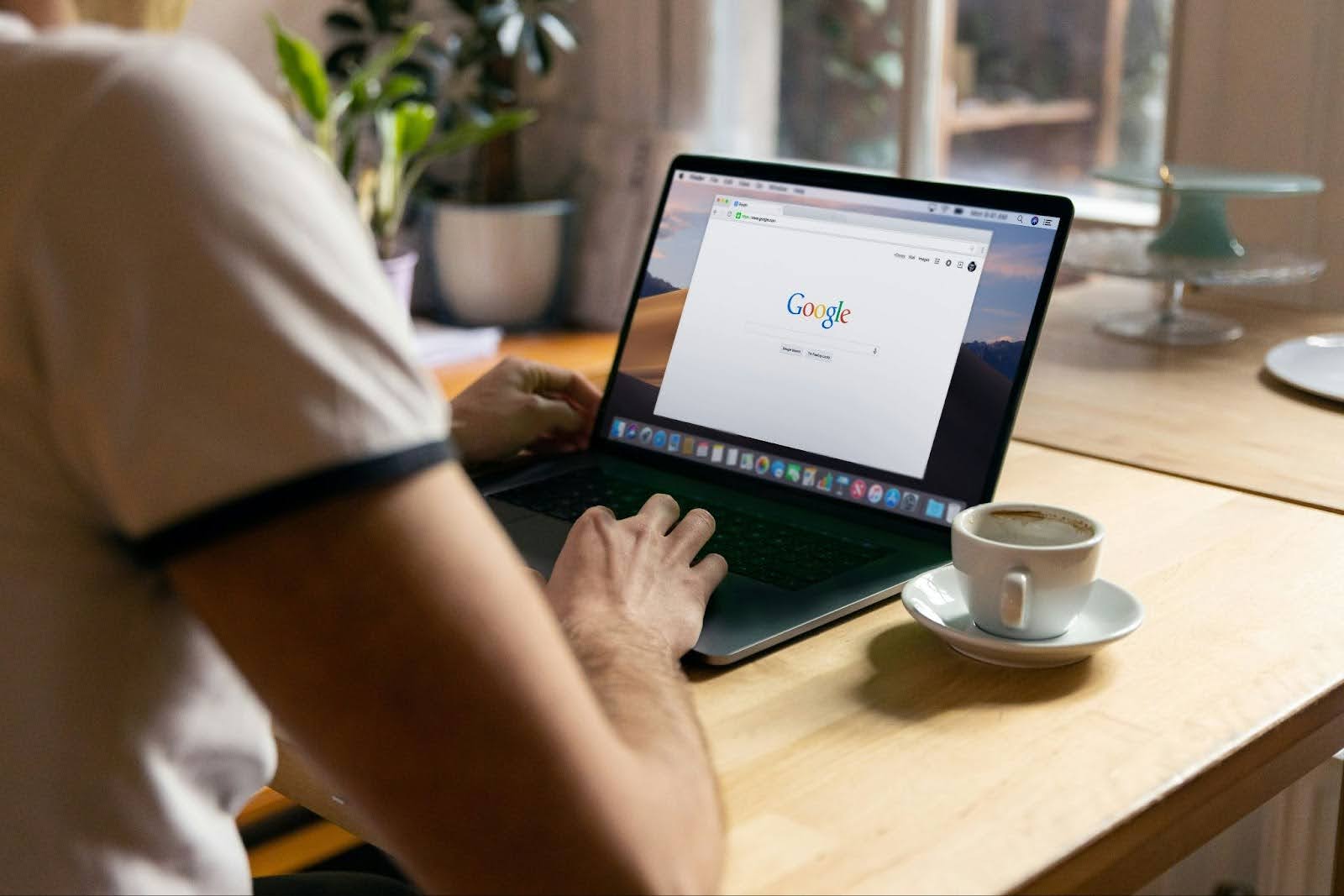Social Media Can Be Toxic – But It Doesn’t Have To Be.

Social Media has a bad rep for being all doom and gloom, but it has its positives. It’s how you use it that counts.
We all know at least one person who’s quit Facebook. Maybe that person is you – or you’ve at least thought about it. And it’s not really surprising considering how often we hear about social media’s toxicity: its negative effects on our individual and collective wellbeing. Its most strident opponents, like Jaron Lainer, consider it a mass addiction as harmful as tobacco, that we should be all quitting for the good of society:
Social media is making you unhappy, it hates your soul, and quitting it is the best way we have to resist the insanity of our times.
Jaron Lainer: Ten Arguments For Deleting Your Social Media, 2018
Considering that Facebook just had its biggest year on record, we must surely be on the path to certain destruction, in that case. But more than 1.3 million new users joined social media every day during 2020, bringing the global total of users to nearly 4.2 billion.
Can half the world’s population really be wrong?
Social media has it’s problems for sure, but let’s face it – it definitely isn’t going away. Whether you want to be on these platforms or not is ultimately your decision, and while it can be hard to get off, it can be done. However, there are many benefits to be enjoyed too, and plenty of us who don’t really want to quit.
Yes, we understand the negatives. But is being so easily connected to our loved ones, or finding others who share our obscure interests so bad? And what about raising awareness of social causes we wouldn’t otherwise know about, helping creatives showcase their work, or simply keeping us entertained when we can’t leave home for you know, a year?
Is there a way to enjoy these positive aspects of social media without getting sucked into the so-called toxic mirror?
The answer is yes – you can enjoy a positive experience on social media. The key to doing it is to make those platforms work for you and not the other way round, and the good news is that it’s actually fairly simple!
It’s in your hands
For over 20 years now we’ve been hearing that intense use of the Internet increases the risk of isolation, alienation, and withdrawal from society, but evidence shows that it actually increases sociability, civic engagement, and the intensity of family and friendship relationships, in all cultures. And if we needed more proof, just look at how the internet saved us all in 2020!
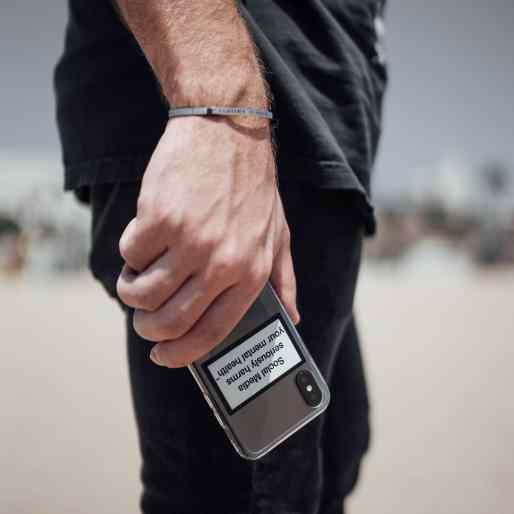
Social media is really just a tool and it’s up to us whether or not it becomes a source of toxicity. While these apps may be designed to take over our attention, we can –and should – take back control. It’s true that there will always be negativity around, but there are certain tools and techniques you can use to limit your exposure to toxic content and ensure you enjoy a mostly positive experience on these apps.
Control What You See
The simplest way to ensure you enjoy the time you spend using social media apps is to manage the type of content you’re exposed to every time you log in. Here are five ways to ensure a non-toxic experience on social media:
- Comb through your friends and following lists and lock down your privacy settings so you are in full control of who sees what you post on social media. Most apps allow you to create a “close friends” list, which is a great option if you plan on sharing more personal content that you don’t want casual acquaintances to see.
- Curate your newsfeed. Follow more people and accounts who post positive content and delete or block the negative Nancys and Nigels. If you want to avoid offending people then you can unfollow without unfriending on Facebook, and on Instagram, there’s the mute function. Twitter is a little trickier for this, not least because it’s considered by many to be the most toxic of all the social media platforms, and in the Hedeonometer, which has been measuring the average happiness of Twitter users since 2009, recorded 2020 as the saddest year on record. Still, if you feel like sticking around there until the bitter end, Twitter has this handy guide on how to control your experience.
- Beat the algorithms and be selective with your likes – be sure not to tap on anything you don’t actually like. In fact, even if you are offended by a piece of content and flag or report it, an algorithm registers this as an engagement regardless, boosting its reach.
- Instagram’s “Discover” page will show you more and more of the type of content you engage with, and that goes for YouTube too. To avoid feeling manipulated by the algorithms, never click on a “suggested” video and instead always use the search function to find what you’re looking for.
- Avoid comments sections at all costs. They tend to be breeding grounds for hate due to something called “online disinhibition”, and even on a good day, they are a massive time suck.
Get used to the idea that your attention is yours – how you spend it is up to you. Think of your time as the precious commodity that it is, and protect it at all costs!
Practice intention
Social media use has become an almost subconscious experience for many of us, and research shows this type of passive use (mindlessly scrolling through a never-ending news feed) may be linked to depression. Conversely, active use (posting photos, engaging with others) is associated with a positive effect on mental health. Here are five points to pay attention to when you reach for your phone:
- Notice how you feel when you’re opening apps or visiting sites. Do you really want to know what your friends are having for lunch – or are you trying to avoid a task or uncomfortable feelings?
- Notice any patterns – are you scrolling Instagram every afternoon when you feel tired and unmotivated? Perhaps a brisk walk might be a better option! As Nir Eyal says: “You can’t call something a distraction if you don’t know what it’s distracting you from”
- Decide in advance exactly how long you want to spend on social media each week, set yourself a limit – and stick to it. Use a tool like Freedom to block access during times when you want to be working, sleeping, or enjoying other activities.
- Don’t perpetuate toxicity! Be mindful about the things you are putting online and why. Remember that social media isn’t always the best place to post negative thoughts and feelings. If you are struggling and could use extra support, seek out supportive online communities like Action for Happiness or The Mighty.
- Remember that you are in control of what you post, and you needn’t feel under pressure to share more than you want or even anything at all. The chances are that most people probably won’t even notice if you don’t post for a week or so. And remember: you can take a break whenever you want.
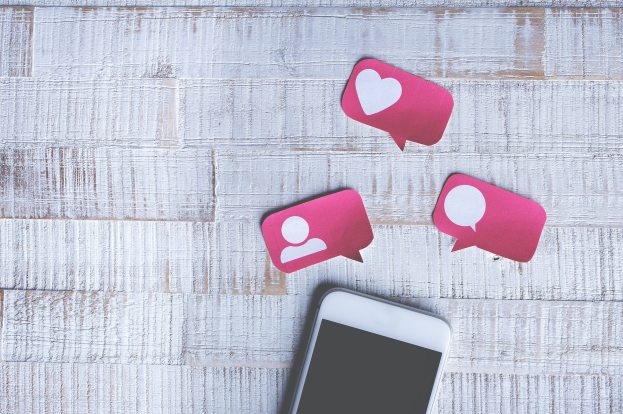
Using Freedom to limit your time on toxic social media
So you’ve established that you want to spend less time on social networking sites and apps, what now? The debate is out on whether social media is truly addictive, but the truth is that you’re up against some pretty heavy technology that has the single aim of taking as much of your time and attention as possible. People who are happy in other areas of their lives are less likely to get addicted to social media – or anything else for that matter – so, as with most things in life, moderation is key.
Using technology to combat a problem of technology may seem like a paradox, but as long as we’re living in the age of the Attention Economy, it is absolutely the best way to enjoy the benefits of social media without getting sucked into its toxic negativity. Our goal at Freedom is to create humane technology that quietly helps you lead the life you want. Freedom can help you to be much more intentional about your social media usage, leading to a more productive, happier life.
There are several ways you can use Freedom to improve your relationship with social media – it really depends on what you want to accomplish:
- There may be times when you really want to focus and you don’t want to be distracted by the internet at all. During these times, you may want to block the entire internet. This will keep you from accessing any websites and force you to focus 100% on the task at hand.
- To block the internet, simply go to your dashboard and check All Websites in the Block these distractions, section. Select how long you want your session to last, check the box beside All Websites, click Start, and then get to work.
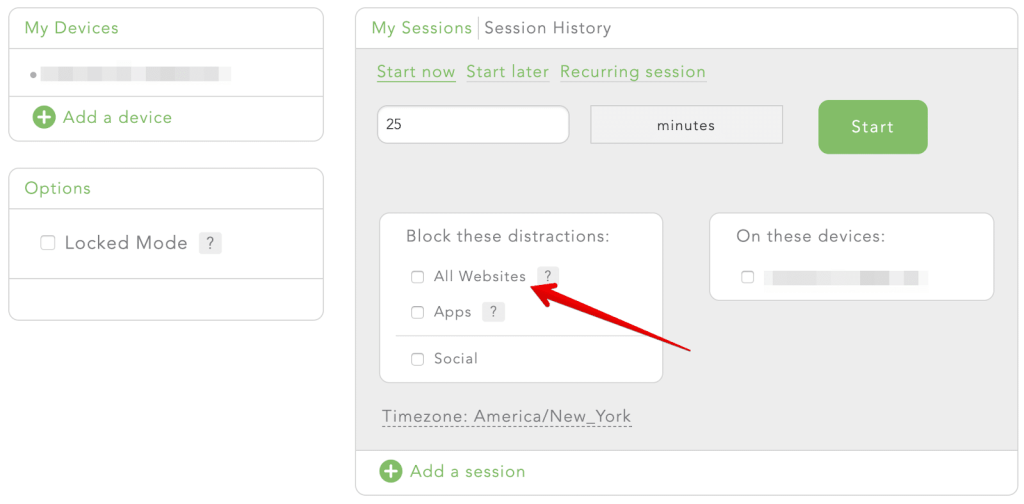
- There are other times when you need to access the internet but want to block social media. To do this, you just need to create a blocklist that contains all the sites you want to block.
- You can select from predetermined groups of websites, such as Time Wasters, select individual websites like Facebook or Instagram, or any other site that you want to block that’s not on the list.
- Once you’ve selected the specific sites you want to block, set your time period, and then get to work.
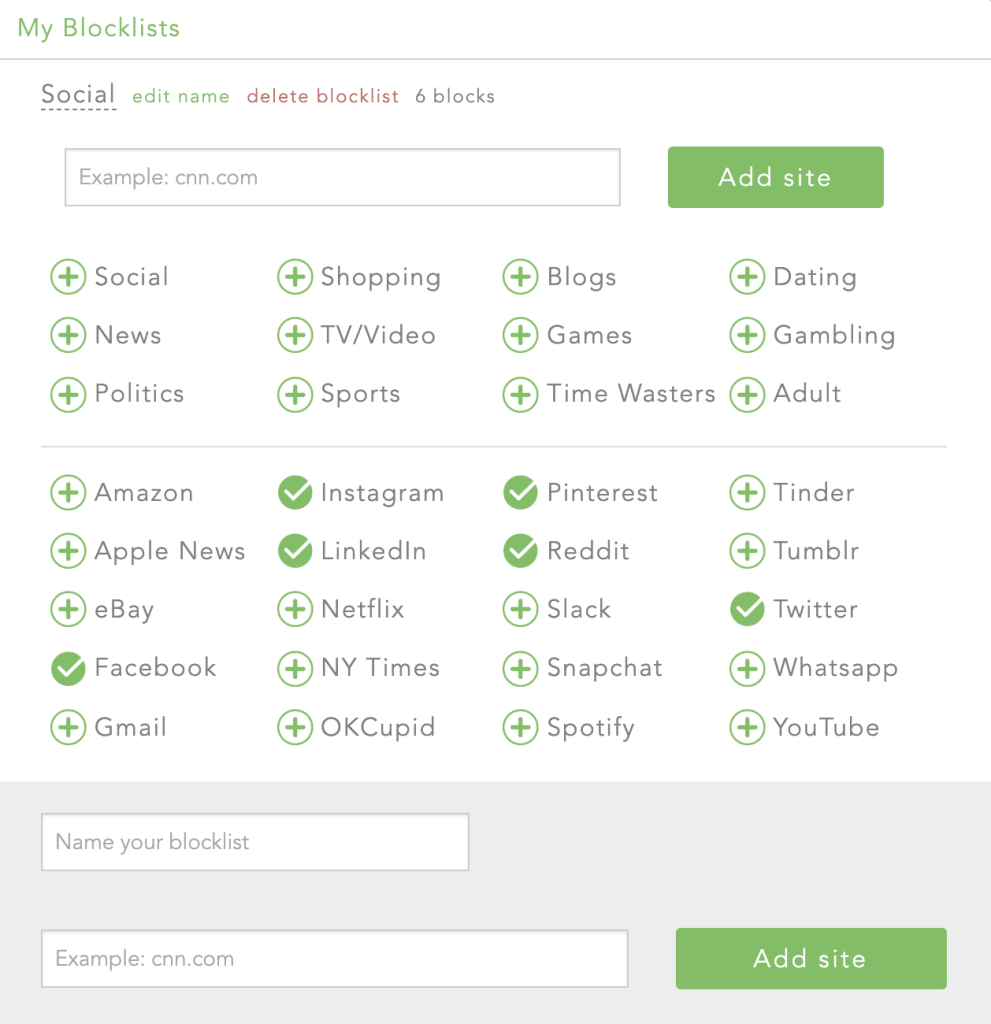
- You can also use Freedom to create a digital detox for yourself. For example, let’s say you want to take a break over a weekend or vacation.
- Select Start Later, then select when you want your session to start and when you want it to end. You can schedule up to a 24-hour window this way.
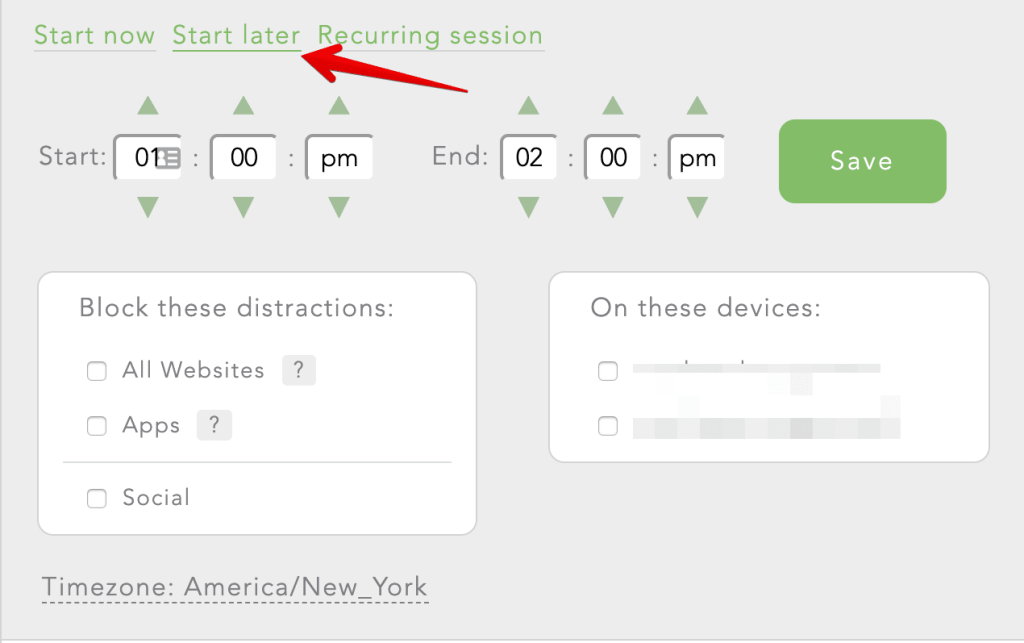
- Or let’s say you want to schedule a recurring break from social media each weekend. Simply select Recurring Session. Then select which days you want to block specific websites, as well as how long you want to block the websites.
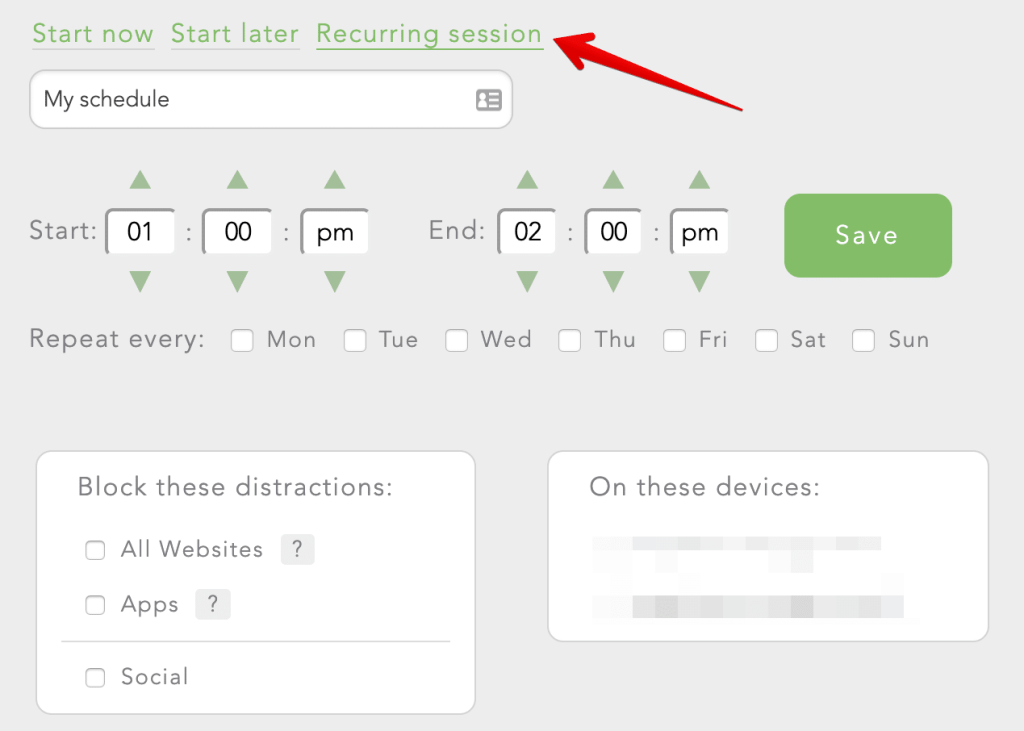
While these apps may be designed to take over our attention, we can – and should – take back control.
Social media is what you make it
The experience we have on social media depends heavily on the way we use it. However, algorithms that favour extreme content, and the ease of anonymity online combine to produce the toxic effects we see in hate speech, abuse, and trolling. Along with this tendency to breed negative conversation, it’s also easy to feel inferior when comparing yourself and your life to the highly curated feeds you see online.

You definitely shouldn’t feel bad or “weak” about finding it hard to log off something that is literally designed to hold your attention for as long as possible. The need to connect with others (especially during periods of isolation!) is very normal, and social media can be a wonderful tool when used carefully. Get used to the idea that your attention is yours – It may have become currency for these companies but ultimately, how you spend it is up to you. Think of your time as the precious commodity that it is, and protect it at all costs! By exercising more mindful thinking and behavior while using a tool like Freedom, you can enjoy the best bits of social media and cut the toxicity out of your life.


